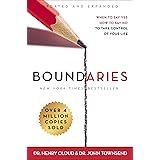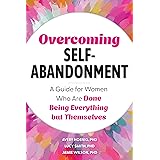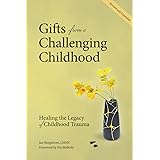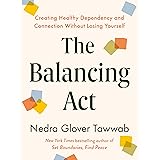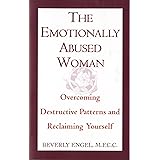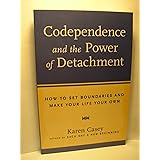The story shared in the video above offers a poignant glimpse into the harrowing reality of gambling addiction, particularly the insidious grip of poker machines, or ‘pokies’ as they are known in Australia. It highlights a journey that began innocently in the early 1990s, evolving from a casual pub pastime into a relentless 25-year battle. This narrative underscores a critical truth: problem gambling often starts subtly, masquerading as harmless entertainment before spiraling into devastating consequences for individuals and their families.
For many, the introduction of poker machines into social venues like pubs completely changed the landscape of leisure. What started as a novelty soon became a deeply ingrained part of the social fabric. Understanding this progression, from a simple “chuck a buck in” to an all-consuming obsession, is vital for recognizing the signs of gambling addiction and mitigating its widespread impact.
The Deceptive Allure of Pokies: An Australian Perspective
The early 1990s marked a significant shift in Australia with the widespread introduction of poker machines. Initially perceived as mere “mechanical toys” or “video games,” these machines quickly became ubiquitous in pubs and clubs. The narrator’s account of friends abandoning conversation for the hypnotic glow of screens paints a vivid picture of this cultural transformation.
This accessibility, coupled with clever machine design, made them particularly dangerous. Imagine a device crafted to maximize engagement, with bright lights, enticing sounds, and the promise of a big win just around the corner. These elements are not accidental; they are psychological triggers engineered to keep players engaged and betting.
From Casual Play to Compulsive Gambling
The journey into gambling addiction often begins with a seemingly innocuous first win, as the narrator experienced. That initial “190 something bucks” was not just money; it was a potent dose of dopamine, creating a powerful association between the machines and a feeling of triumph. This positive reinforcement can quickly lead to a distorted perception of control and the belief that winning is predictable.
Within weeks, the narrator moved from occasional play to visiting the machines every day, a classic indicator of increasing dependency. This rapid escalation from casual player to daily participant is a common pattern in problem gambling. The brain learns to associate the act of gambling with intense pleasure and excitement, making it incredibly difficult to stop.
The Silent Crisis: Financial Ruin and Secrecy
As the addiction deepens, the financial toll becomes immense. What begins as spare change quickly escalates to significant losses, maxed-out credit cards, and the depletion of life savings. The narrator recalls hearing about others losing homes and financial stability by 1995-96, a grim foreshadowing of her own trajectory.
This phase is often marked by secrecy and denial. The individual believes they are “too smart” to fall victim, or that their luck will eventually turn around. However, the design of these machines ensures that the house always has an edge, making sustained winning an impossibility. Poker machine addiction drains resources, leaving individuals trapped in a cycle of chasing losses, desperately trying to win back what they’ve spent.
The Psychological Grip: Music, Dreams, and Obsession
The narrator’s chilling description of the “Pokies music” playing “round and ’round and ’round” in her head illustrates the profound psychological impact of compulsive gambling. This isn’t merely a catchy tune; it signifies intrusive thoughts, an inability to escape the mental grasp of the machines, even during sleep.
Dreams often become filled with gambling imagery, further blurring the lines between reality and the addiction. This constant mental engagement, known as cognitive distortion, means the individual is perpetually planning their next visit or replaying past scenarios. It consumes their mental space, leaving little room for other thoughts or activities.
Relationship Fallout: When Addiction Takes Over
One of the most devastating consequences of gambling addiction is the erosion of personal relationships. The narrator explicitly states, “At the heart of my addiction, my husband didn’t matter. My friends, my own children. They didn’t matter.” This stark admission reveals the isolating nature of the disease.
Addiction prioritizes the addictive behavior above all else, often leading to neglect, deceit, and emotional distance from loved ones. Arguments become frequent, trust breaks down, and partners or children often feel secondary to the gambling. The relief felt when her husband left, born from no longer having to “sneak around,” highlights the suffocating burden of maintaining the addiction while pretending to lead a normal life.
Reaching Rock Bottom: A Catalyst for Change
For many grappling with severe problem gambling, a moment of crisis, a “rock bottom,” becomes the turning point. The narrator’s traumatic experience of frantically searching for loose change, with her seven-year-old daughter innocently helping, serves as this painful catalyst. With only “85 cents left” in her bank account, the desperate act of taking money from her child’s room brought the full weight of her addiction into horrifying focus.
This desperate act, witnessed by her daughter, shattered the illusion and forced a raw confrontation with the reality of her choices. Such moments, though deeply painful, often provide the stark clarity needed to recognize the severity of the problem and seek help. It is when the consequences become undeniable that the path to recovery can finally begin.
Understanding the Addiction Cycle and Seeking Help
Gambling addiction is a recognized mental health disorder, not simply a lack of willpower. It often involves a complex interplay of psychological, social, and even biological factors. The cycle typically involves pre-occupation, increasing amounts of money and time spent gambling, chasing losses, and experiencing negative consequences while continuing to gamble despite them.
Recognizing the warning signs, whether in oneself or a loved one, is the first step towards intervention. These signs might include increasing secrecy, financial difficulties, neglected responsibilities, mood swings, or obsessive thoughts about gambling. If you or someone you know is struggling with poker machine addiction or any form of problem gambling, resources are available. Organizations like Gamblers Anonymous, Gambling Help Online, and local counseling services offer vital support. Breaking the cycle requires courage, professional help, and a supportive network to navigate the challenging journey towards recovery.


